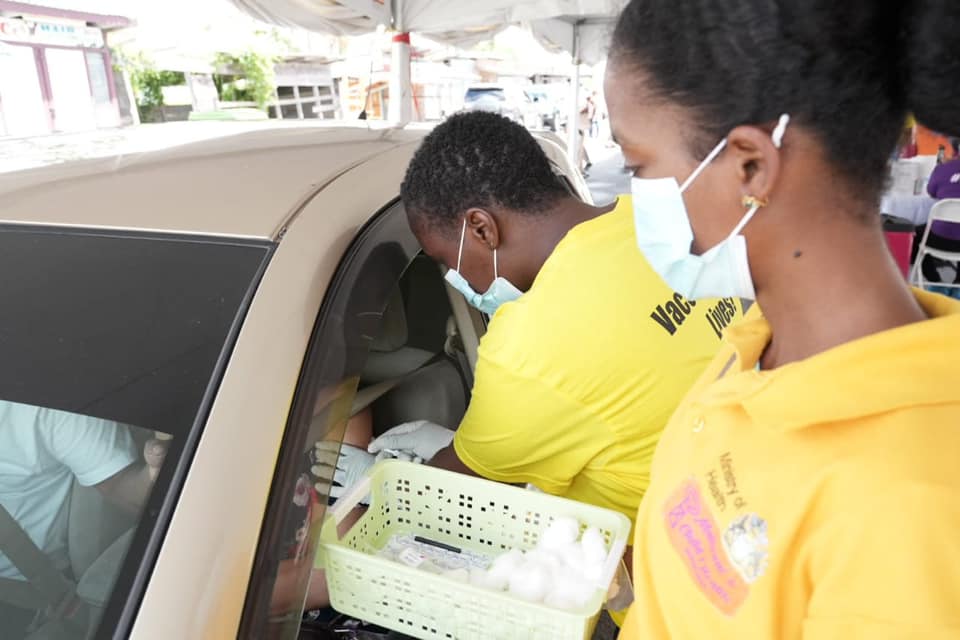Home Features Coronavirus: Death should not be an option when vaccines are readily available
Dr Zulfikar Bux
Assistant Professor of Emergency Medicine, Vanderbilt Medical Center
The last two months have been the deadliest since COVID-19 hit the shores of Guyana. During this same period, vaccines have become available for every eligible individual. The data is revealing that the unvaccinated are the ones that are dying and getting hospitalized from COVID-19. I am at a loss trying to understand why some would choose to die rather than be vaccinated and be part of the solution to this pandemic. If someone had told me 6 months ago that by mid-2021, Guyana’s death rate would be at its peak while vaccines were readily available for all, I would not have believed. Today, I wish to focus even more on the importance of vaccination against COVID-19 and hope that we get it right especially, with the threats that are coming.
The vaccination data so far
Over 225,000 (48% of adult population) persons have received their first vaccine dose thus far in
Guyana. Of these persons, 95,000 (20% of the adult population) have already received their second
dose. There is no case of a fully vaccinated person becoming hospitalized or dying from COVID-19 so far. This means that every person that is dying or being hospitalized in Guyana from COVID-19 is unvaccinated. Unfortunately, this pattern will continue for the foreseeable future as only 1 out of every
5 eligible person is fully vaccinated. The other 4, are at a higher risk of becoming infected and dying from COVID-19. It is unfortunate, but we will be losing many more lives while we try to convince everyone to be vaccinated. This madness will only stop when more than 85% of the eligible population is vaccinated.
An even more deadly variant is on its way
Every time a variant of concern surfaces, the death and hospitalization rates spike significantly wherever that variant surface. We all should be aware of the recent devastation in India which was primarily from the new delta variant. This variant is more deadly and infectious than any of its predecessors. It has already reached the shores of Europe and the United States. Given the patterns of spread of previous variants, it may only be a matter of time before it reaches us here in Guyana. If this occurs then there is
a good possibility of us experiencing similar devastation to what occurred in India. So far, the vaccines are holding up against this variant and is the most effective tool we have against it.
Why are there so many new variants?
New variants are popping up at higher rates than before. What is worrying, is the numbers of variants of concern (dangerous variants) are also rising. The more persons a virus infect, the more it will mutate
into newer variants. COVID-19 infections have increased and spread more in the past 8 months and as a
result, mutation rates and variant formation has increased. This trend will continue unless preventative measures and vaccination rates are drastically stepped up in many countries.
What can happen with so many variants?
Every time the SarsCov2 virus mutates into variants of concern, it is evolving into more dangerous forms that pose new threats to our lives. This virus can only mutate if we allow it to spread from person to person. Every time it infects someone, there is a risk of it mutating. The worry for scientists is that unless we stop this virus in its tracks very soon, it will start to mutate into vaccine resistant forms which will evolve and sustain this pandemic and many more lives will be lost. In addition to preventative measures, rapid vaccination is the key to preventing this virus from evolving into forms that will destroy us even more.
Being vaccinated is therefore not only about you; it is about us all coming together to save ourselves and unite against a common enemy. COVID-19 will not go away if we let our guard down. It will continue to take many lives unless we work together and achieve the “vaccination for all” goal earlier rather than later. Be responsible! be part of the solution! Get vaccinated!
Article submitted
as part of the Ministry
of Health’s COVID-19
public information
and education programme. For questions,
email [email protected]
